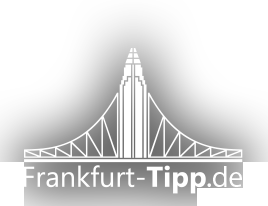Kommt ein Boot geschippert und legt am Eisernen Steg. In new German this is called "pop-up". One such boat popped up on the Main in September, with white straw parasols stretched across its upper deck, frog-green sun chairs unfolded and two display boards in tow.
The Museum Judengasse has really come up with something to do museum work. Because it so doesn't look like a museum for visitors, but sure, you get the idea: a beach and sweet idleness. (I personally went on the boat for you and checked the relaxation character in detail.)
What is there to experience? After the usual bag check at the entrance, guests can opt for Tel Aviv Beach or the upper deck; plus purchase Israeli tapas and drinks at acceptable prices. (Coffees are available for less than four euros.)
And along the way, the museum sprinkles in its commitment. Or rather, its intention to ask visitors for their opinions. "What do you want from the Jewish Museum?" is met with requests like "the boat should stay," "free Wi-Fi," or "love" and "more contact with the art scene in Tel Aviv." The question apparently met with lively interest, because many stickers plastered the side of the boat.
The boat, while very successful as a relaxation oasis, is in fact already the first <link http: www.juedischesmuseum.de startseite.html _blank>"exhibition experience" of the Jewish Museum that will one day enrich Frankfurt. In a six-week campaign, a place has been created to bring the idea for the new JM into conversation: inspired by the Jewish tradition of the tent or also the Tabernacle, in which the time of being on the road, more precisely the desert wanderings of the Israelites, is remembered, the Pop Cup boat will anchor at the Schaumainkai until the Feast of Tabernacles.
Till October 16, visitors can expect a multi-faceted program that ranges from concerts to films, lunch talks to readings and more, starting at 12 p.m. daily. Up-and-coming directors will present their projects, authors will talk about growing up Jewish in Germany, and Jewish perspectives on feminism and the current refugee issue will be discussed.
Ach, in all seriousness, music should not be neglected. Efrat Alony, La Bolshevita and Vocal Global Music, whose sets are influenced by jazz, punk, hip hop, Balkan beats and electro, show that Jewish music doesn't necessarily just mean klezmer. Well, isn't that exciting









